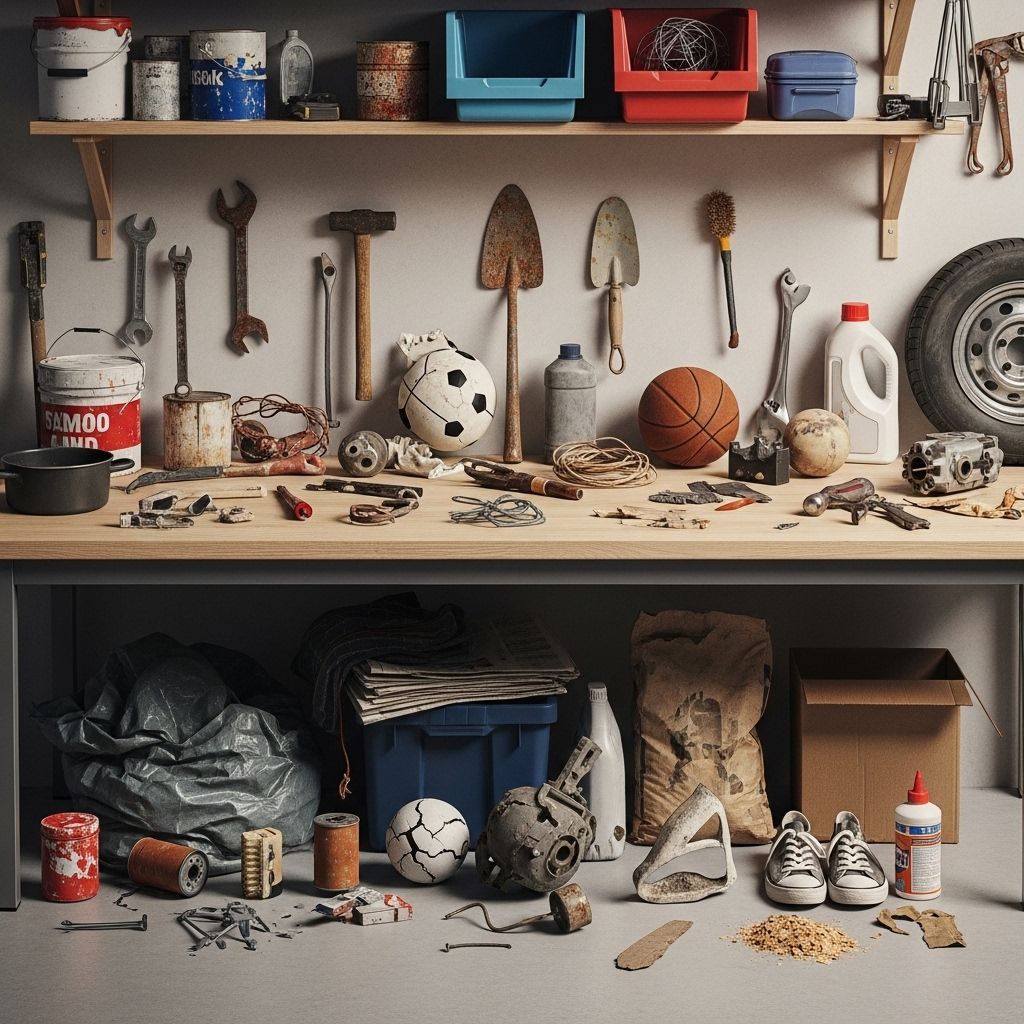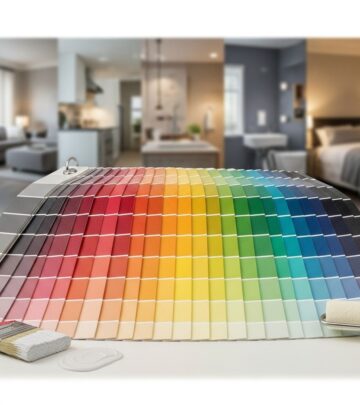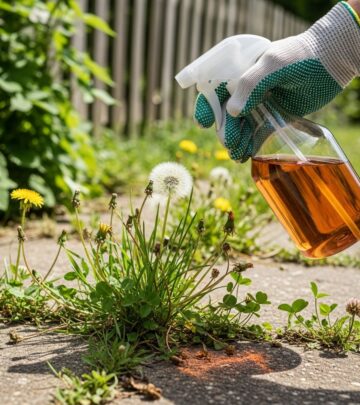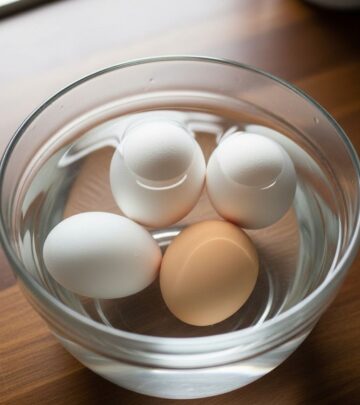25 Things to Toss From Your Garage Right Now For a Clutter-Free Space
Eliminate unused mess to uncover hidden storage and boost your home’s functionality.

Is your garage packed with items you haven’t used in years, broken equipment, or forgotten boxes stacked in dusty corners? The garage too often becomes a catchall for things that don’t have a place elsewhere—and it can quickly turn into the most cluttered area of your home. Today, we’ll show you exactly what to clear out and why, so you can reclaim your garage as a safe, organized, and functional space.
Why You Need To Declutter Your Garage
With families spending more time at home, garages often fill up with sports equipment, outdated paint cans, old holiday décor, and long-forgotten tools. A cluttered garage can be more than just unsightly; it may attract pests, create safety hazards, and make it impossible to find what you truly need. Decluttering lets you:
- Free up valuable storage space and possibly park your car in the garage again
- Improve safety by preventing trips, falls, and exposure to hazardous materials
- Make it easier to organize what you choose to keep
- Reduce stress and wasted time searching for lost items
How to Get Started
Before you begin decluttering, set aside a day—or weekend—when everyone can help. Prepare three large zones or bins: Keep, Donate/Sell, and Toss. If possible, empty your garage onto the driveway so you can see everything at once.
Ready to dig in? Here are the 25 types of items you should let go of for a garage that works with you, not against you.
1. Dried-Out or Old Paint Cans
Paint doesn’t last forever. Check cans for expiration dates or dried-out contents. Old paint can leak toxins and is costly to dispose of once deteriorated. Drop off at a hazardous waste facility if needed.
2. Outdated or Non-Working Electronics
Busted radios, corded phones, dead batteries, and obsolete gadgets often pile up. Dispose of them at an electronics recycling center.
3. Empty or Broken Boxes and Bins
Crushed boxes and cracked plastic bins serve no purpose but to foster chaos and attract pests. Recycle or trash unusable containers.
4. Old, Expired Chemicals and Cleaners
Open, half-used bottles of harsh cleaners, pesticides, or fertilizers become dangerous if left for years. Check expiration dates and take hazardous items to your local waste drop-off.
5. Deflated Sports Equipment
Balls that won’t inflate, flat bike tires, and other broken sporting goods will never get used. Toss and consider donating good-condition extras.
6. Unused Exercise Equipment
That treadmill gathering dust or broken stationary bike? If it hasn’t been touched in a year, it’s time to part ways—sell or give away if it still works.
7. Unmatched Garden Tools
If you have three rusty trowels, two broken rakes, or duplicate tools you never use, select your favorites and donate or recycle the rest.
8. Leftover Project Materials
Scraps of wood, tile, drywall, or old nails left over from past home improvement projects often linger pointlessly. Keep only universal spares or amounts likely to be used soon; toss the rest.
9. Unused or Outgrown Toys and Bikes
Bikes or scooters the kids have outgrown, or broken ride-on toys, are just taking up space. Donate working items and recycle or trash the rest.
10. Dated Holiday Decorations
Faded inflatables, broken tree lights, and décor you haven’t displayed in years should be donated or discarded. Keep only what you truly use and love each season.
11. Unreliable or Duplicate Lawn Equipment
If the weed-whacker or mower hasn’t started in years, or you own three of the same tool, sell, recycle, or toss the extras.
12. Broken Furniture and Patio Sets
Wobbly chairs, rusted tables, or busted patio umbrellas rarely get repaired. Free up room by hauling unusable pieces to the curb or a recycling facility.
13. Unused Building Supplies
Sealants, adhesives, caulk, and other supplies that have expired or dried out provide no value—and can be unsafe. Dispose following local regulations.
14. Old Appliances
Mini-fridges, freezers, or microwaves that no longer work create safety and fire hazards. Arrange for proper appliance recycling or disposal.
15. Incomplete Hardware and Fasteners
Coffee cans and jars full of random screws, bolts, or nails with no mates aren’t helpful. Sort, recycle, or trash unpaired and excess hardware.
16. Extra Car Parts and Fluids
Unlabeled or expired motor oil, spare tires with cracks, old windshield wipers, or filters you longer own a vehicle for should be recycled properly or disposed of safely.
17. Old Magazines, Books, and Manuals
Outdated repair manuals, unread magazines, or water-damaged books contribute nothing but clutter. Donate or recycle these paper goods.
18. Unused Paint Supplies
Paint trays, rollers, and brushes hardened with paint aren’t worth saving. Only keep essential, quality items for your next project.
19. Outgrown Pet Supplies
Cages, leashes, or toys from pets you no longer own can be donated, sold, or discarded.
20. Plastic Flower Pots
Stacks of flimsy, leftover flower pots multiply quickly. Keep a few sturdy ones for gardening and recycle the rest.
21. Old Camping and Outdoor Gear
Broken tents, leaky coolers, bent stakes, or moldy sleeping bags will hinder your next adventure—pare down to quality essentials only.
22. Worn-Out Shoes and Boots
Old sneakers or boots reserved for “yard work” have a way of piling up. Keep only one reliable pair and toss the others.
23. Expired Food and Drinks
If you use your garage as overflow food storage for canned drinks or pet food, check expiration dates and toss anything past its prime.
24. Empty Gas Cans and Propane Tanks
Unused or rusty containers pose safety risks. Dispose of old tanks and cans as hazardous waste, following local guidelines.
25. Forgotten Donation Piles
That box of old clothes or household goods you’ve meant to give away? Donate them! Don’t let them linger in a forgotten corner.
Smart Tips for Organizing What Remains
- Group Items by Category: Sports, gardening, auto tools, and home supplies should each get dedicated zones.
- Use Vertical Space: Install shelves, pegboards, or wall hooks to keep the floor clear.
- Choose Clear Storage Bins: See contents at a glance, and label each bin clearly.
- Store Frequently Used Items Up Front: Save hard-to-reach shelves for seasonal or rarely accessed gear.
- Add Proper Lighting: Well-lit spaces prevent accidents and make it easier to locate items.
Table: Common Garage Items to Toss and Safer Alternatives
| Should Be Tossed | Safer/Smarter Alternatives |
|---|---|
| Expired chemicals/paint | Fresh, labeled containers, stored high and safe |
| Worn extension cords | Quality, up-to-code cords safely wound and hung |
| Unlabeled bins & boxes | Clear, stackable, labeled bins |
| Broken lawn tools | Fewer, well-maintained tools |
| Unused old toys | Rotate in and out, donate regularly |
Storage Solutions for a Tidy Garage
- Shelving Units: Adjustable, heavy-duty units allow you to maximize vertical space for bins and seasonal gear.
- Pegboards: Great for organizing tools, gardening gear, or crafting supplies in plain sight.
- Overhead Racks: Use for rarely accessed items like holiday décor or luggage.
- Cabinet Systems: Lockable cabinets provide secure space for hazardous materials and power tools.
- Sports Racks: Secure balls, bikes, and bats to wall-mounted holders or ceiling hooks.
Frequently Asked Questions (FAQs)
Q: How often should I declutter my garage?
A: Most experts recommend going through your garage at least once a year—spring and fall cleanings are ideal. Regular maintenance prevents clutter from accumulating and makes each session shorter and easier.
Q: What should never be stored in my garage?
A: Never store important papers, electronics sensitive to moisture, pet food, or items that are combustible or potentially hazardous (such as propane tanks and pesticides) unless they are in approved containers and conditions.
Q: How can I dispose of hazardous garage items?
A: Items such as old paint, batteries, motor oil, or chemicals should be taken to your local hazardous waste disposal facility. Never toss these in your household trash.
Q: What is the best way to store tools safely?
A: Use toolboxes, pegboards, or wall-mounted racks to keep sharp or heavy tools off the floor and out of reach of children. Always check that power tools are unplugged and locked away when not in use.
Final Thoughts: Welcome to Your Clutter-Free Garage
Decluttering your garage isn’t just about making space—it’s about reclaiming a valuable part of your home for the activities and storage that matter most to you. Once you’ve cleared out these 25 types of items, set a yearly reminder to keep clutter in check, and use smart storage solutions to keep things tidy. You’ll be surprised how a clean garage can reduce stress, streamline your daily routines, and even boost your home’s value.
References
- https://followtheyellowbrickhome.com/clear-the-clutter-garage-organization-tips-and-ideas/
- https://www.houzz.com/magazine/how-to-organize-your-garage-on-nearly-any-budget-stsetivw-vs~159847589
- https://www.countryliving.com/home-maintenance/organization/g64380294/garage-organization-heroes/
- https://www.countryliving.com/home-maintenance/organization/a65543185/things-garage-need-to-toss/
- https://www.cozycountryliving.com/garage-organized-1-weekend/
- https://www.homemadetools.net/forum/garage-organization-madness-62662
Read full bio of Sneha Tete










